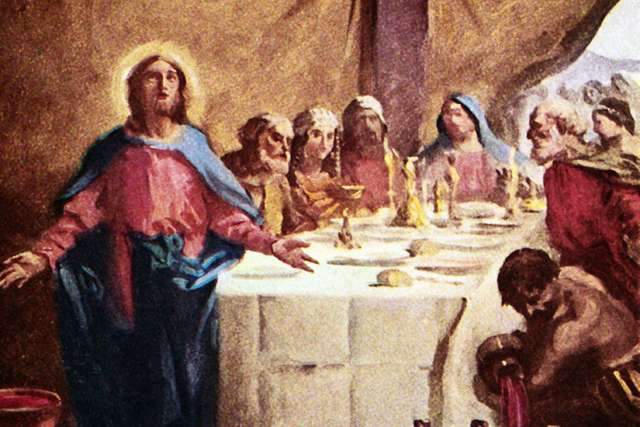For example, could the prayer for the Church and its leadership in our various eucharistic canons have these additions: Remember, Lord, your entire Church, spread throughout the world, and bring her to the fullness of charity, together with N. our Pope and N. our bishop, together with all who help lead other Christian churches, and all the clergy.” Might our eucharistic prayers have this kind of inclusivity?
Why? For three reasons:
First, because Jesus did. In John’s Gospel, Jesus prays explicitly for those who hold the same faith but are separated, for whatever reason, from the community to whom He is speaking at that moment. He prays for “other sheep that are not of this fold” (John 10, 16). Raymond Brown, perhaps the most-respected scholar on John’s Gospel, among others, submits that at the time when John’s Gospel was written (somewhere between the years 90 and 100) there were already divisions within the Church, akin to our denominational divisions today, and that Jesus’ prayer for “other sheep that are not of this fold” is in fact a prayer for other Christians who were separated in theology and worship from the community within which John places this particular saying of Jesus. And Jesus, with a heart for everyone and not just for those who are members of this particular community, prays for those others: “I must lead these too. They too will listen to my voice, and there will be only one flock, one shepherd.”
Second, if we, like Jesus, in fact love those who share the same faith with us but from whom we are separated, it should be painful for us that our eucharistic table is not complete, that some of our family are not at the table with us, that our table has empty places. Roman Catholics are not a whole family. Protestants are not a whole family. Evangelicals are not a whole family. Free Christian churches are not a whole family. Only together do we make a whole family. A eucharistic prayer that prays only for ourselves as a community and for our Pope and our bishops is somehow incomplete, as if we had no need to acknowledge and feel the real absence of so many sincere persons who are not with us as we celebrate the real presence of Christ on our table and experience the intimacy this gives us. It is joyful to celebrate with each other at the Eucharist; but we need to acknowledge, and at a central place in our prayer, that we long for, wish well to, and pray for, those who no longer share the family table with us. And such a prayer should not be seen as a concession to our separated brothers and sisters. Its intent should also be to keep us, Roman Catholics, from being content with a family that is fractured, as if we have no need for those who are not with us.
Finally, there is the practical consideration of sensitivity and hospitality. More and more, whether it be at funerals, weddings, interdenominational retreats or other such events that draw other Christians into our Roman Catholic Churches, we are celebrating the Eucharist in situations that require, or at least should require, a keener ecumenical sensitivity. In these situations, personally, as a priest, I find it awkward and not fully hospitable to pray for our Catholic community, for our Pope, our bishops and our clergy without any solicitude for, or mention of, other Christian churches, their leadership and their struggles for community in Christ. I think that hospitality asks of us (dare I say, demands of us) a greater ecumenical sensitivity than we have been offering at present. Wouldn’t everyone benefit if we did this? Wouldn’t other Christians, we ourselves as a community of love and hospitality, and the whole Body of Christ (which is wider than our particular historical community) be enriched if we, in this prayer that is so central to us, would pray explicitly for those who share the Christian faith with us, but are separated from us? Wouldn’t this be a gracious gesture of hospitality?
What would we be compromising by doing this? What are we protecting by not doing it? Would we not be more sensitive to the Gospel and Jesus’ words and actions by doing this?
So this is my straightforward plea: Please add an explicit invocation within each of our eucharistic prayers that prays for other Christian churches and their leadership. You will be on safe ground. Jesus did this.
I offer this suggestion in all respect, as a loyal son of the Church.
(Fr. Rolheiser can be reached at ronrolheiser.com.)


